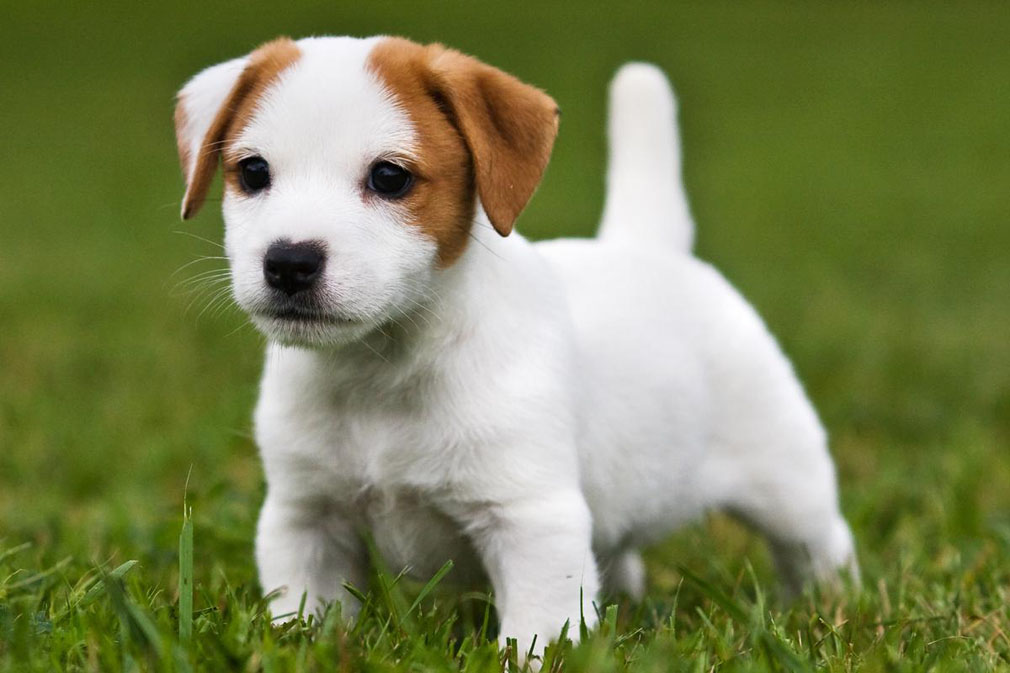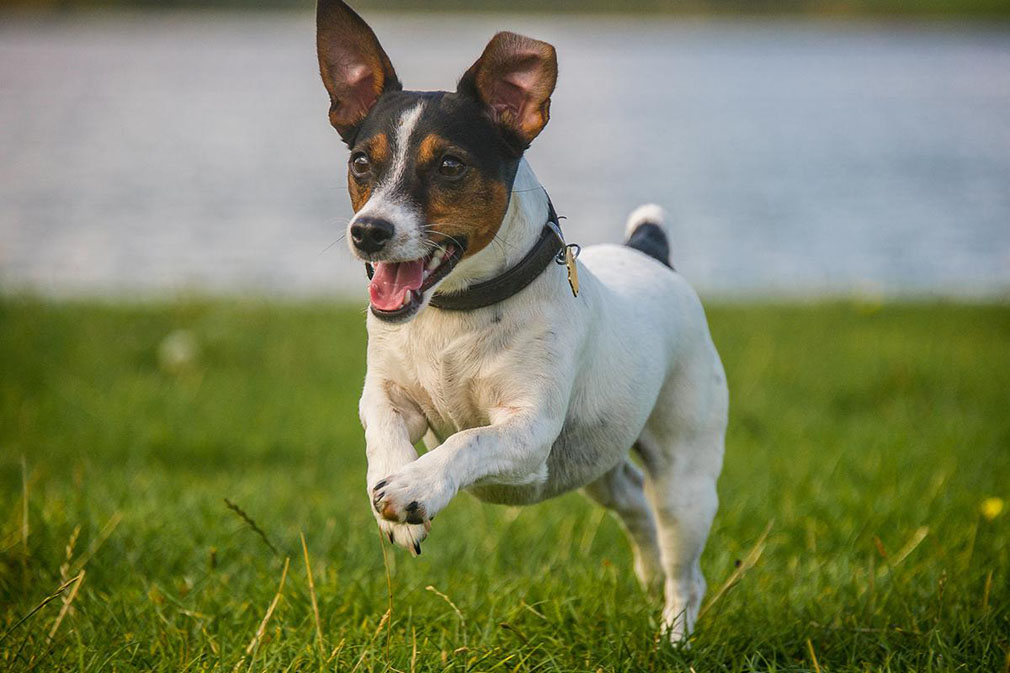Jack Russell Terrier


 Puppy
Puppy
 Fully Grown
Fully Grown
People sometimes mistake a Jack Russell Terrier for a Miniature Fox Terrier. But Jack Russells' legs are shorter, their bodies are longer and they have much wider chests that make them look more muscular.
Jack Russells always have their tails up when they walk, which makes them look alert. This makes sense as they are natural hunters. They are not short on self-esteem and are fearless, alert and friendly. Jack Russells think they are big dogs and act like it too!
They love learning new things and have an immense amount of energy. They are lively and happy little chaps on small legs but with the potential to be long distance runners.
The Jack Russell's weakness is the water: they love to go swimming to flush out birds - regardless if there are birds or not. Good luck trying to stop them!
They enjoy a busy family life and show protective tendencies towards their family, so might bark at your visitors or any strangers who come to the door.
| Weight: | 6-8 kg |
| Health risk: | Low |
| Life expectancy: | 13-16 years |
| Coat: | Short |
| Grooming intensity: | Low |
| Monthly cost (food): | Below average |
| Trainability: | High |
| Activity level: | Very high |